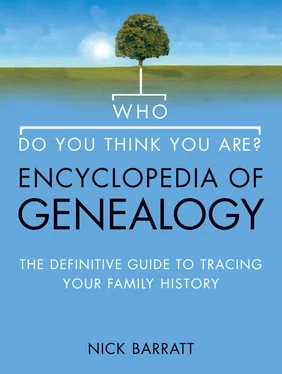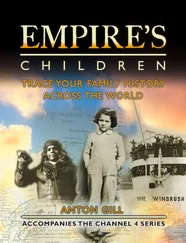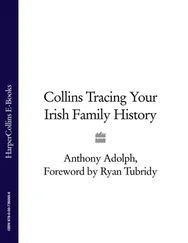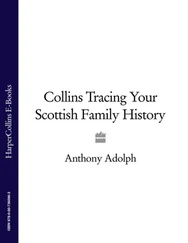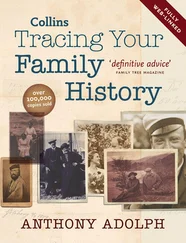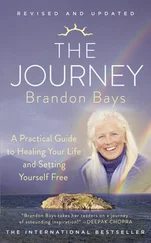Each country in the British Isles has its own national archive where documents concerning central government are deposited. These are:
• The National Archives (TNA) based in Kew in West London, covering England, Wales and the UK
• The National Archives of Scotland (NAS) at Edinburgh
• The National Archives of Ireland, based in Dublin
• The Public Record Office of Northern Ireland (PRONI) in Belfast
There are also major collections relating to Wales at the National Library of Wales (NLW). Descriptions of each institution are provided in Section Five.
The holdings of each of these archives are not strictly determined by geography. If your ancestors lived outside England then you may still need to visit The National Archives at Kew as well as the particular country’s national archive, as the centralization of administrative records to London has affected all of the countries at some point in time. A change in the location of government does not always mean historic archives have moved to that new location. Each country also has a central General Register Office from which family historians order duplicate copies of birth, marriage and death certificates (see Section Two). The advice provided in Section Three relating to specific topics of family history will explain when you will need to visit each of the national archives, and what records you should use when you arrive.
Specialist Genealogical Libraries
There are other centralized archives that hold some documents that are not accessible at the above-mentioned national and regional archives, as well as duplicate copies of those that are. The Society of Genealogists based in central London has copies of many parish registers from county record offices around the UK, as well as indexes to records held in other archives, documents relating to people around the British Empire, and much more.
It is also worth visiting your local library as well as an archive. Not only will many libraries play host to your nearest local studies centre, many have now opened specialist family history services, given the popularity of the subject these days. Furthermore, many libraries hold important manuscript collections that are worth visiting in their own right, as well as important reference works that will play a crucial part in shaping your knowledge of how and where your ancestors lived. This is especially true at national level. The British Library in St Pancras, London, contains a copy of most books that have ever been published, but – as you will discover in Section Three – it also has a collection of genealogy records for people who lived in the British Empire, including records of baptism, marriage and burial in India. There are similar national libraries for Scotland (in Edinburgh), Wales (Aberystwyth), the Republic of Ireland (Dublin) and Northern Ireland (Belfast). Many academic libraries also hold important collections of primary evidence.
Finally, do not forget to visit museums, both specialist – such as the National Railway Museum or National Coal Mining Museum (both featured in Who Do You Think You Are? when Sue Johnston and Lesley Garrett went looking for their ancestors) – and local, such as the Rochdale Museum where much research into Bill Oddie’s ancestors took place. Museums will be full not only of documents, but objects, artefacts, clothes, engines, machinery, books, sporting memorabilia – anything from the past that shows what life was like for your ancestors. This is where you will finally begin to understand the era in which your relatives lived, to encounter history up close, and find out about some of the events they lived through.
Museums can also help you to identify some of the bits and pieces you’ve found during your own research within the family. Items of clothing or household objects can be taken to local museums or national ones such as the Victoria and Albert Museum (for clothing and textiles especially), where curators can help you date them. Military memorabilia such as medals can often be interpreted at places such as the Imperial War Museum.
There are various online databases to help you find libraries, archives, record offices, museums and repositories around the UK, and even around the world. Most of these allow you to enter the name of a place or use an interactive map to display a list of all the nearest archives to a particular area. The ARCHON Directory is perhaps one of the most useful databases to start with, and it’s available from The National Archives website at www.nationalarchives.gov.uk/ archon. It contains addresses, telephone numbers, websites and street maps for local and major repositories all over the UK, the Republic of Ireland, the Channel Islands and the Isle of Man, and you can search by region or by entering the name of the place in which you’re interested. Visit the Scottish Archive Network (SCAN) at www.scan.org.uk/directory/index. htm to find an additional alphabetical directory of Scottish archives.
If, as outlined earlier, you want to find out where the principal records of a particular landowning family are kept, the best way is to search the National Register of Archives, now part of The National Archives. You can view their paper indexes in person at their main search room at Kew, but a quicker route is to key the name of the landowning family into their online database at www.nationalarchives.gov.uk/nra and click on ‘Family Name’. You will then be given a list of all archives holding relevant material. So if you were looking for a connection to the Marquess of Sligo, as actor John Hurt was, you could type in ‘Sligo’ and quickly learn that relevant records were stored in the National Library of Ireland.
To recap, your next step after building your family tree is to verify the information you’ve got. Then you can extend the tree further back in time and, by following a particular branch of the family or story, investigate the historical context. You can start the verification process and extend your family tree online by obtaining certificates, census returns, wills and parish registers, as described in Section Two; but you may find it easier to simply visit the local studies centre or county record office in the area your family comes from to look at paper or microfiche indexes for these certificates and records, many of which are not available on the Internet. In any case, you will certainly need to visit an archive sooner or later to add historical context, so here are some important points to know before you do venture inside.
Step One: Preparing for Your Visit
If you are unfamiliar with working in an archive, here’s a checklist of things to do before you visit. Never just turn up unannounced – it’s a sure way to have a frustrating day.
The best thing you can do is to make contact with the archive you plan to visit. Call them, email them or write to them. The archivists there can tell you all about the place, demystify the process of registering as a user (or ‘reader’), explain how to search for records, both onsite and online, and – provided you ask simple, detailed and focused questions – may even be able to give specific advice to help you find what you’re looking for. If this is the case, you can always ask to talk to the person that helped you when you do eventually visit in person, if they are around and are not tied up with other duties. Don’t forget, you can find the archive nearest to you through ARCHON, mentioned above. If in doubt, contact the local studies centre for further advice.
Читать дальше
